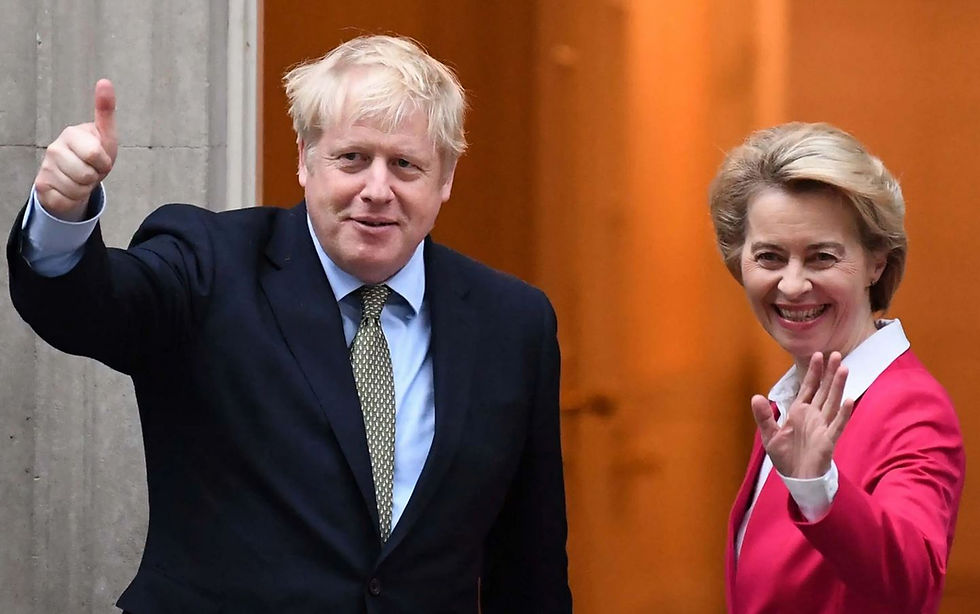Brexit Britain still acts like a member state of the EU
- George Hoare
- Dec 17, 2020
- 3 min read
George Hoare argues that the prospect of Parliament being bounced into ratifying a last-minute UK-EU trade deal without serious scrutiny or debate demonstrates that Britain is still behaving like an EU member-state.

We at The Full Brexit have previously argued that it was impossible for Boris Johnson’s government to deliver a “Full Brexit”, as the potential for popular sovereignty, greater democracy, and economic renewal could only be seized by forces more democratic and more committed to destroying the status quo than any Conservative Party possibly could be.
As the negotiation period draws to a close, it is again clear how far from a Full Brexit we find ourselves. For one thing, it is evident that the effects of EU membership continue to influence how the UK governs. Boris Johnson’s putting of MPs on standby to ram through a last-minute deal shows how the modus operandi of the EU is reflected in domestic politics, with the whole process characterised by secretive talks and parliaments bounced into ratifying decisions rather than any sort of openness or accountability. Much as it was within the EU itself, control over large parts of economic policy continues to be subject to secretive diplomatic negotiation. Brexit as a democratic moment (without a democratic movement) was not able to extend to democratic control of how the leaving of the EU should be conducted, for instance through public briefings, regular and open discussions in parliament, or anything beyond closed-doors and last minute unaccountable decision-making.
As we have argued on The Full Brexit and beyond, this detachment of political decision-making from democratic legitimacy is closely related to the process of state transformation that has seen nation-states morph into member-states, seeking legitimacy not from disengaged publics at home but from elites abroad. This has been a long-term process, and cannot be reversed overnight – another reason why the UK cannot straightforwardly escape the gravitational field of the EU through the right trade deal. In truth, the gravitational field of the EU will continue to have an effect on domestic politics until the EU falls apart or the political mass of the UK is sufficient to pull the EU apart. Moreover, the UK could only acquire that political mass by the full democratic mobilisation of its people to inspire the nations of Europe, a prospect which seems particularly distant in the context of the mass demobilisation of the current COVID-19 response.
For the time being, we are still in the political situation where the detachment between the political class and electorates across the world has left a void, which has been filled not only by populist parties of all stripes but also by a set of ideologies that attempt to create moral or political distance between elites and the (national) masses, undermining the political authority of democratic majorities by branding the people as racist, fascist, or otherwise underserving of political representation. The dominant methods of governing society for elites across the globe indeed look to paint national masses as racist, sexist, or homophobic, giving the political class (and the opportunist parts of the Left) license to repudiate the nation on the grounds of conscience.
Whether or not Johnson’s government is able to secure a last-minute deal is of importance not just for those pushing for a Full Brexit, but for democrats across the continent. Over the last few years, support for exiting the EU has decreased across Europe as observers have seen how difficult it has been for the UK to extricate itself from the legal and political structures of the Union. However, the real consequences of Brexit – economic and political – are yet to be felt. Especially if No Deal happens, and is far from the calamity that has been consistently predicted, then attitudes across the Continent could easily change, leading to an intensification of centrifugal forces within the EU.
Comments